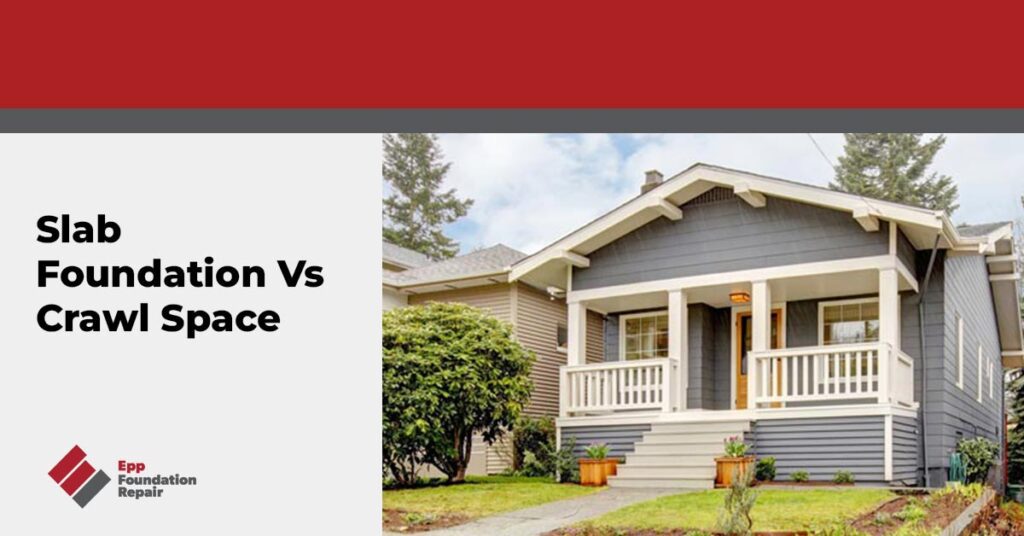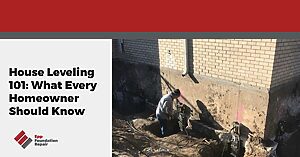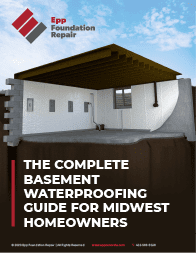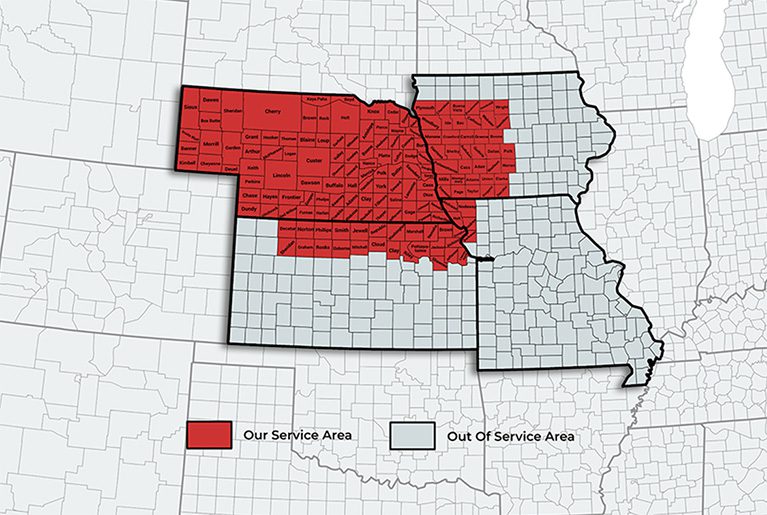Are you wondering what’s the difference between a slab foundation vs a crawl space foundation? If so, don’t hit that back button because you’ve landed on the right page.
If you’re considering buying or constructing a new home, one of the key considerations might be slab foundation vs. crawl space. In order to make the right decision, it’s essential to understand the differences between these two foundation types.
This blog post will look at both options: slab foundation vs. crawl space. We’ll also discuss potential benefits and drawbacks for each type of foundation to help make your decision to build or buy easier.
First Things First. What is a Foundation?

In the world of construction, a foundation is a critical element of every structure. It’s the essential part of the building that gives stability to the entire structure. A foundation sits underneath the building and supports its weight, ensuring it stays in place and does not sink or collapse. Without a strong foundation, a building would be at risk of structural failure. Therefore, its imperative to have a solid foundation that can withstand the weight of the structure and external forces such as earthquakes or other natural disasters.
Three basic types of foundations are used in residential construction in the US: Basement, crawl space, and slab. In this article, we’ll be comparing slab and crawl space foundations.
Slab Foundations Vs. Crawl Space Foundations
A slab foundation is a concrete slab poured directly onto the ground. It serves as both the foundation and the first floor of the house.
A crawl space foundation, on the other hand, includes a small, accessible area 1.5-3 feet high between the ground and the first floor of a house. This area is called the crawl space because there’s just enough room to crawl around.
Both foundation types have their benefits and drawbacks, but ultimately the decision comes down to factors such as climate, soil type, budget, and personal preference. No matter which option you choose, proper construction and maintenance are crucial to the longevity and stability of the foundation.
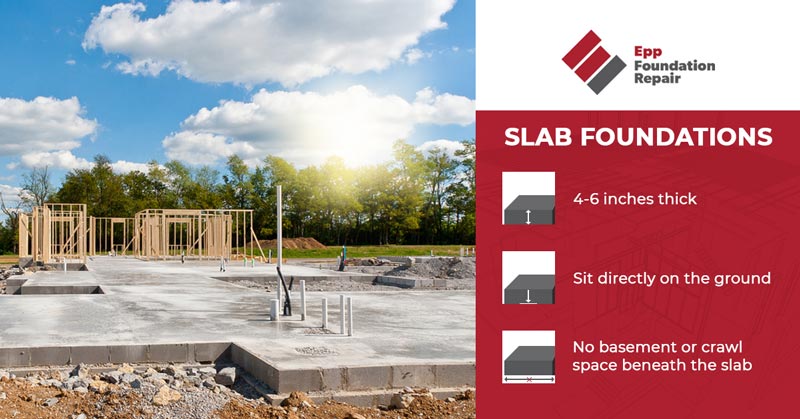
Pros and Cons of Slab Foundations
Pros
- Typically less expensive than other types of foundations
- Construction doesn’t take very long
- Suitable for wet regions (with vapor barrier)
Cons
- More difficult to access plumbing and electrical lines because they’re embedded in the slab
- Not suitable for cold regions because a slab foundation’s footing is above the frost level
- Trees with extensive root systems could invade and push up on the slab
Despite the potential drawbacks, slab foundations are the most popular foundation type in the US. A slab foundation can be an excellent choice for many homeowners looking for a reliable and cost-effective foundation option.
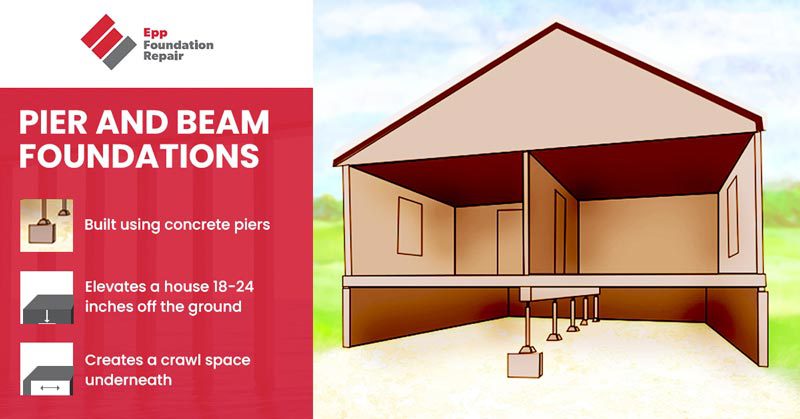
Pros and Cons of Crawl Space Foundations
Pros
- One significant advantage of a crawl space foundation is that it allows for easy access to plumbing, HVAC systems, and electrical wiring. This makes repairs and maintenance much more convenient.
- The crawl space itself can be used for storing things like tools and holiday decorations.
- Good for arid regions
- In areas prone to flooding, a crawl space foundation is advantageous because it raises the home off the ground.
Cons
- A crawl space can be a breeding ground for pests and mold if the moisture level isn’t kept to a minimum.
- Unless you live in a warm area, the crawl space should be insulated to prevent energy loss.
- Crawl space foundations are more costly to build than slab foundations because they require excavation.
- Crawl space foundations generally require more maintenance than slab foundations. To keep moisture out, encapsulation and a dehumidifier may be necessary. A drain tile system might be needed to prevent hydrostatic pressure from building up in the soil and pushing against the foundation walls.
While there are some cons to a crawl space foundation, they remain popular, especially in colder regions of the US.
Slab Foundations vs. Crawl Space Foundations – Cost Comparison
Slab foundations are typically less expensive to build because they don’t require excavation and they’re poured directly onto the ground. In contrast, building a crawl space foundation requires more labor, materials, and, of course, excavation.
As we’ve noted above, each type of foundation has its pros and cons. One is not better than the other. Ultimately, the best choice will depend on your specific needs and budget.
Before You Buy or Build, Do Your Research
Before you buy or build a house, take the time to research and understand the differences between a slab foundation vs. a crawl space foundation. Each type of foundation has its advantages and disadvantages, so it is essential to consider what would work best for you based on cost, ease of construction, and potential benefits. The more you understand each foundation type, the easier it will be to make the right decision.
If you think your home’s foundation might have a problem, contact us today to schedule a foundation evaluation and receive a repair estimate. Since 1994, we’ve helped clients in Lincoln, Omaha, Kearney, Nebraska, Missouri, and parts of Northeastern Kansas with foundation repair, basement waterproofing, crawl space encapsulation, and concrete leveling for their homes.

